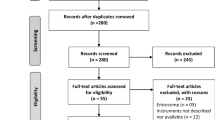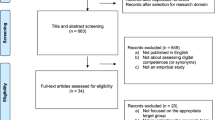Abstract
The article is devoted to the essence, approaches, and tools for the development and measurement of economics students’ digital competence. Apps of general and professional purpose according to their functionality and relevance for Ukrainian enterprises are generalized. The importance of the ability to select apps for a rational solution of professional tasks and the development of the digital competence of specialists are emphasized.
The results of the survey of students of the Poltava State Agrarian University (Ukraine) are presented, to determine the main problems, advantages, and needs in the development of their digital competence. Analysis of foreign approaches (DigComp, DigCompEdu, DigCompOrg, OpenEdu, DigCompConsumers, EntreComp, etc.) contributed to the creation of a framework for economics students’ digital competence measurement. The framework covers the abilities (working with data, communication, content development, safety, problem-solving), indicators, and levels of digital competence development. The expert evaluation revealed that most experts (93,4%) evaluate the proposed project positively, and it can serve as a basis for develo** narrower frameworks for specific economic or related specialties.
Access this chapter
Tax calculation will be finalised at checkout
Purchases are for personal use only
Similar content being viewed by others
Notes
- 1.
The apps’ names are transliterated. The original names and the additional information can be found on the official websites (click on an appropriate app’s name).
- 2.
According to the list of branches of knowledge and specialties of Ukraine, 2015.
References
Ala-Mutka, K., Punie, Y., Redecker, Ch.: Digital Competence for Lifelong Learning. Policy Brief. European Commission (2008). https://doi.org/10.13140/RG.2.2.17285.78567
Bacigalupo, M., Kampylis, P., Punie, Y., Brande, G.: EntreComp: The Entrepreneurship Competence Framework. European Union (2016). https://publications.jrc.ec.europa.eu/repository/bitstream/JRC101581/lfna27939enn.pdf. Accessed 28 Feb 2021
Batalla, J.M., Rimbau, E., Serradell, E.: E-learning in economics and business. RUSC. Univ. Knowl. Soc. J. 2(11), 3–11 (2014). https://doi.org/10.7238/rusc.v11i2.2168
Brečko, B., Ferrari, A.: The Digital Competence Framework for Consumers. JRC Science for Policy Report (2016). https://doi.org/10.2791/838886
Carretero, S., Vuorikari, R., Punie, Y.: DigComp 2.1: The Digital Competence Framework for Citizens with eight proficiency levels and examples of use. JRC Science Hub (2017). https://doi.org/10.2760/38842
Digital Agenda for Europe. European Commission (2014). https://doi.org/10.2775/41229
Digital Competence and Employability. Position paper on a recognition of competences acquired through non-formal and informal learning. Telecenter Europe (2014). https://all-digital.org/wp-content/uploads/2017/08/TE_DIGCOMP-policy-paper_2014_PDF.pdf. Accessed 28 Feb 2021
European Framework for Digitally Competent Educational Organisations (2019). https://ec.europa.eu/jrc/en/digcomporg. Accessed 10 Mar 2021
European Framework for the Digital Competence of Educators (2019). https://ec.europa.eu/jrc/en/digcompedu. Accessed 28 Feb 2021
Ferrari, A.: Digital Competence in Practice: An Analysis of Frameworks. Publication Office of the EU (2012). https://doi.org/10.2791/82116
Glazunova, O., Stolyarchuk, I., Sayapina, T.: Formation of professional digital competence in future economists. In: Proceedings of the 7th International Science Conference on Global and Regional Problems of Informatization in Society and Nature Using, pp. 223–225. NULES of Ukraine, Kyiv (2019)
Gulin, D., Hladika, M., Valenta, I.: Digitalization and the challenges for the accounting profession. In: ENTRENOVA Conference Proceedings, Rovinj, Croatia, pp. 502–511 (2019)
Handbook of International Education Pronouncements (2019). https://www.ifac.org/system/files/publications/files/Handbook-of-International-Education-Standards-2019.pdf. Accessed 10 Mar 2021
Havrilova, L.H., Topolnyk, Ya.V.: Digital culture, digital literacy, digital competence as modern educational phenomena. Informatsiini tekhnolohii i zasoby navchannia 5(61), 1–14 (2017). https://doi.org/10.33407/itlt.v61i5.1744
Hubschmid-Vierheilig, E., Rohrer, M., Mitsakis, F.V.: Digital competence and SMEs: review of the relevant literature. In: 20th International Conference on Human Resource Development Research and Practice Across Europe (UFHRD). Nottingham Business School, Nottingham Trent University, Nottingham (2016). http://irep.ntu.ac.uk/id/eprint/37009/. Accessed 10 Mar 2021
Inamorato dos Santos, A., Punie, Y., Muñoz, J.C.: Opening up Education: A Support Framework for Higher Education Institutions. European Union (2016). https://doi.org/10.2791/293408
Kampylis, P., Punie, Y., Devine, J.: Promoting Effective Digital-Age Learning: A European Framework for Digitally-Competent Educational Organisations. European Union (2015). https://doi.org/10.2791/54070
Khomik, O.M.: Use of electronic social networks to form a managerial culture of future economists. Informatsiini tekhnolohii i zasoby navchannia 1(51), 95–102 (2016). https://doi.org/10.33407/itlt.v51i1.1309
Kongpradit, K., Teepjatuponand, K., Hossain, M.: An Investigation on Digital Competence of Accounting Undergraduate Students in the Private Higher Education Institutes (2020). https://doi.org/10.13140/RG.2.2.20727.04004
Poiasok, T.B., Bespartochna, O.I.: Forming a culture of Internet communication for future economists. Visnyk Kremenchutskoho natsionalnoho universytetu imeni Mykhaila Ostrohradskoho 2, 11–16 (2019). https://doi.org/10.30929/1995-0519.2019.2.11-16
Pryidak, T.B., Yaloveha, L.V., Leha, O.V., Mysnyk, T.H., Zoria, S.P.: Digital competence development as a condition for ensuring future economists’ competitiveness. Inf. Technol. Learn. Tools 5(73), 28–47 (2019). https://doi.org/10.33407/itlt.v73i5.3035
Recommendation of the European Parliament and the Council of 18 December 2006 on Key Competences (2006). https://eur-lex.europa.eu/legal-content/EN/TXT/?uri=celex%3A32006H0962. Accessed 28 Feb 2021
Scuotto, V., Morellato, M.: Entrepreneurial knowledge and digital competence: keys for a success of student entrepreneurship. J. Knowl. Econ. 4(3), 293–303 (2013). https://doi.org/10.1007/s13132-013-0155-6
Szadziewska, A., Kujawski, J.: Professional competencies of accounting specialists in the opinion of ‘finance and accounting’ students at the university of Gdansk. In: Proceedings of ICERI 2017 Conference, Seville, Spain (2017). https://doi.org/10.21125/iceri.2017.1429
The digital accountant: digital skills in a transformed world. Association of Chartered Certified Accountants (2020). https://www.accaglobal.com/content/dam/ACCA_Global/professional-insights/digital_accountant/pi-digital-accountant.pdf. Accessed 28 Feb 2021
Tudor, C., Gheorghe, M., Oancea, M., Şova, R.: An analysis framework for defining the required IT&C competencies for the accounting profession. Account. Manag. Inf. Syst. 4(12), 671–696 (2013)
Acknowledgements
We are sincerely grateful to the management of the Poltava State Agrarian University, the Faculty of Accounting and Finance, students who contributed to the implementation of this research. Their support inspires us to continue the study in this direction.
Author information
Authors and Affiliations
Corresponding author
Editor information
Editors and Affiliations
Rights and permissions
Copyright information
© 2022 The Author(s), under exclusive license to Springer Nature Switzerland AG
About this paper
Cite this paper
Dorohan-Pisarenko, L., Bezkrovnyi, O., Pryidak, T., Leha, O., Yaloveha, L., Krasota, O. (2022). Designing a Tool for Economics Students Digital Competence Measurement. In: Ignatenko, O., et al. ICTERI 2021 Workshops. ICTERI 2021. Communications in Computer and Information Science, vol 1635. Springer, Cham. https://doi.org/10.1007/978-3-031-14841-5_21
Download citation
DOI: https://doi.org/10.1007/978-3-031-14841-5_21
Published:
Publisher Name: Springer, Cham
Print ISBN: 978-3-031-14840-8
Online ISBN: 978-3-031-14841-5
eBook Packages: Computer ScienceComputer Science (R0)




